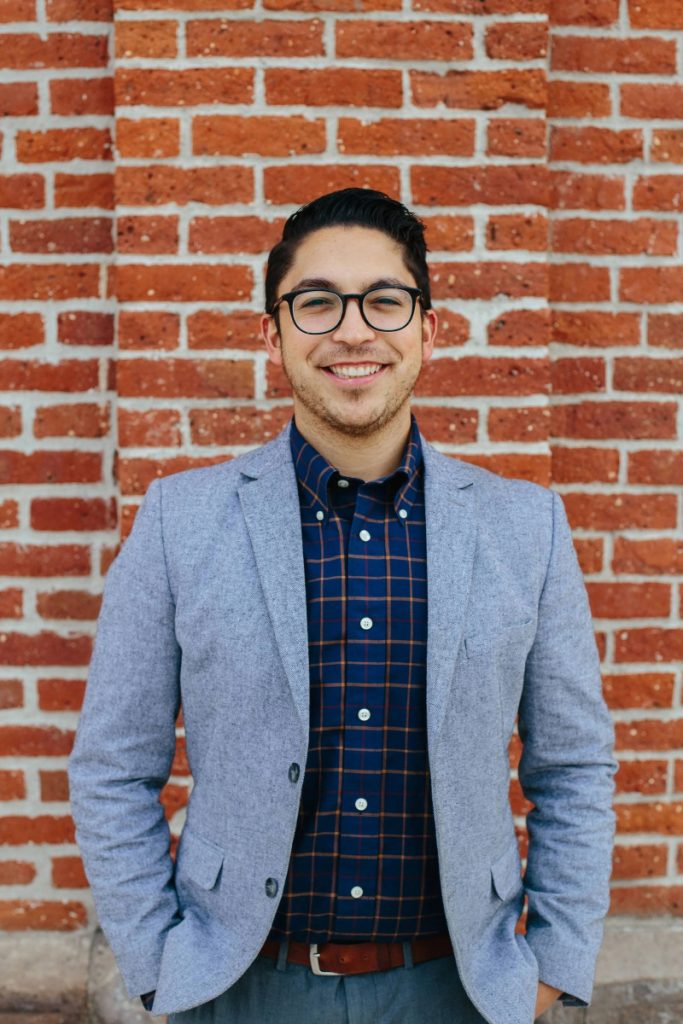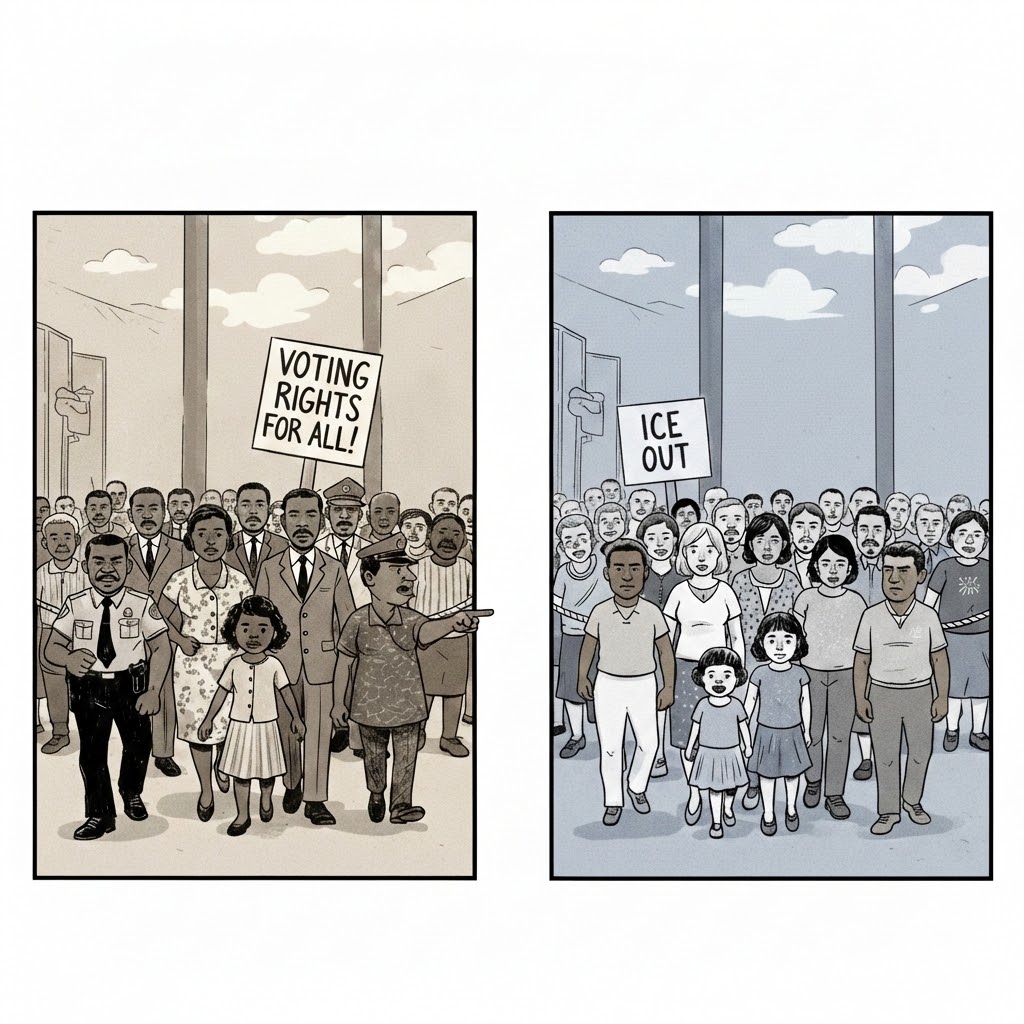Editor’s note: This piece by Richard Maez is the latest installment of monthly contributions to Boardhawk from Ednium: The Alumni Collective.
I was born and raised in southwest Denver and attended all my neighborhood schools, including graduating from John F. Kennedy High School. My parents were deeply involved in my education, stressing that the only thing people can’t take from you is the knowledge you learn throughout life.
I had a great experience in Denver Public Schools, and I felt prepared to attend college because of that, but I know my experience was vastly different from others in my community. I went to the University of Denver to pursue a degree in education. I started student teaching at George Washington High School and then served in a full-time role for five years as the IB Program Manager.
I was focused on access to advanced courses for all students given that GW had a history of academic segregation. I wanted to ensure every student had access to educational opportunities, but also found success in determining what to do after high school.
I joined Ednium’s founding Leadership Launchpad cohort in 2020 to not only build connections with fellow alumni, but to understand why the system that I was working in was still perpetuating the problems that my fellow alumni faced when we were in school. While convening with this group of DPS alumni, the key question we sought to answer was “what was fundamentally missing from my experience in Denver Public Schools?”
How does credit work?
How can I buy a house?
Are college loans worth it?
I never learned about people who looked like me.
I didn’t learn about what it meant to be different until I went to college.
I’ve never been able to share my identity in a way that felt safe or encouraging.
As we all shared our lived experiences, two fundamental topics rose to the top: financial literacy and cultural and ethnic studies.
We recognized the importance of our shared stories and how we needed to share that to effect change at the district level. We advocated to two different superintendents, incoming and outgoing board members, district leaders who have stayed and left, and dozens of teachers and school leaders. Many of us shared our testimony at public comment for the Board of Education, emailed staff, and wrote commentary in local papers.
These are courses the community has advocated for years. The DPS Board of Education listened to community needs and agreed in 2021 to pass both Financial Literacy and Cultural and Ethnic Studies courses as graduation requirements.
While still working full time at GW, I was contracting with Ednium on the policy implementation of the new graduation requirements within DPS. It was cool to see the systemic change since I was actively helping those students with their graduation requirements in my role at GW. It was one of the few required policy changes that teachers actually bought into because the ask came directly from the community.
After the policy passed, the real work began. Ednium was not just going to stop because the policy was approved. We knew the work wouldn’t be done until all students were in the course and we could gather feedback to continue to improve the courses.
This is a key pillar of Ednium; to see the changes we make through and ensure they are having their intended impact.
Initially, we recognized there was a funding gap for Financial Literacy in the district, so Ednium took the initiative to secure a grant from Next Gen Personal Finance to fund implementation for DPS. We helped interview and choose the person who would oversee the program, curriculum and implementation.
For Cultural and Ethnic Studies, we connected the district to the curriculum content developers who fully created it in collaboration with teachers and students in DPS. We didn’t want the curriculum to be cookie-cutter; it had to be relevant to students in this city and was intentionally designed to include rigorous literacy practices.
We feel confident that we are fulfilling what the alumni said was missing from their experience and that students today should not be having the same experiences as the generation that came before them.
In the 2024-2025 school year, 100% of district run schools offer a financial literacy course and 100% of district run schools have a Cultural and Ethnic Studies course.
Because of this, we have been asked to present our findings around financial literacy to other partners and school leaders. We’ve been challenged to think of how we implement this in K-8 classrooms or for adults who missed out on this type of education. What can this look like for students from a district that is at the forefront of this kind of change?
But to think of the future, we must first secure these policies into practice. Through this collaborative effort, we recognize that from when these policies were initially passed and implemented until now, we have hit speed bumps in the loss of institutional knowledge.
A large number of the initial partners in the district that we worked with are no longer there, which requires another round of relationship building, knowledge sharing, and vision alignment. This process inevitably stalls momentum and ultimately negatively impacts student experience in the classroom for these courses specifically. It also disrupts the continuity of messaging and development of DPS staff who are tasked with providing the skills alumni identified as critical to their ability to thrive.
We have an opportunity in Denver to lead the way in how to equip students with these vital skills; to be the standard of financial education and cultural awareness in the state and beyond. However, for this to be possible, we need to create the systems and structures in DPS to last beyond any administrative changes, personnel movement and alumni who graduate from Denver high schools.
We’re looking for a monetary and capacity commitment from the district to ensure these graduation requirements are successful for many years to come.
We are excited to meet and partner with the district and build some shared energy for the future. We have confidence in our ability to partner with the district at every level. And we are encouraged that District leadership has committed to meeting with us to discuss how we can build a shared long-term vision of success with these courses.




